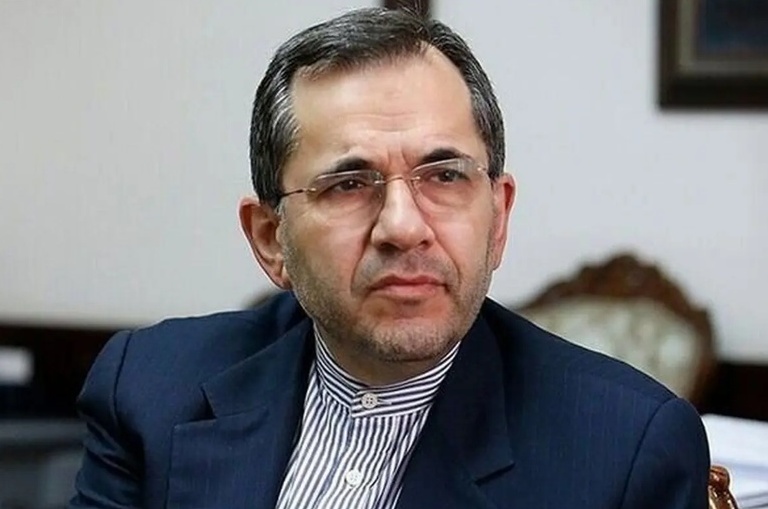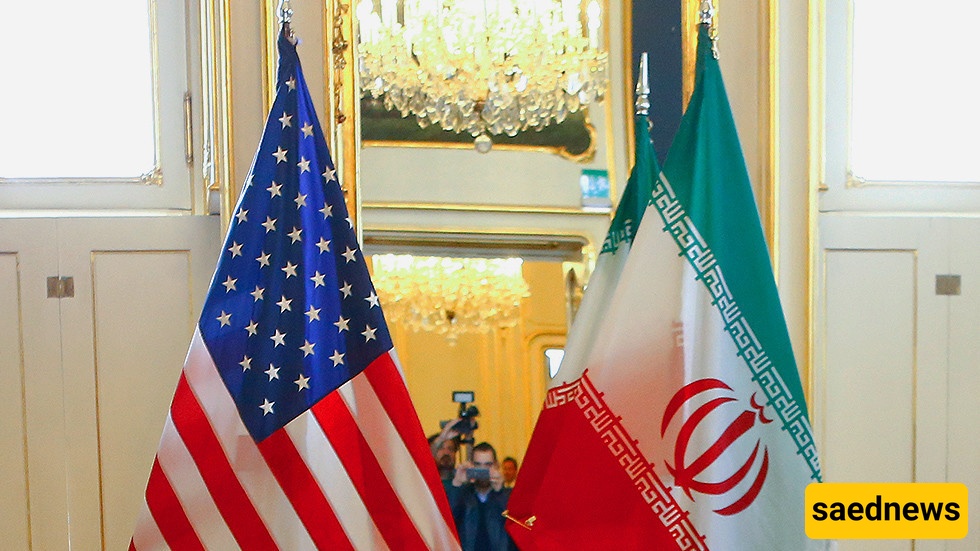SAEDNEWS: Iran is open to temporary constraints on its nuclear program in exchange for lifting US sanctions but firmly refuses to stop uranium enrichment, emphasizing the need for mutual trust and guarantees before resuming negotiations.

According to Saed News citing ISNA, Majid Takht-Ravanchi, Iran’s Deputy Foreign Minister for Political Affairs, told a Japanese media outlet that Iran is willing to accept “limitations on nuclear development for a certain period” in exchange for the lifting of US sanctions. Tehran can agree to such temporary restrictions on its peaceful nuclear activities as part of a “fair and win-win agreement.”

Nuclear negotiations between Iran and the United States have stalled due to significant disagreements, with the US demanding an end to uranium enrichment and Iran opposing this. On the eve of the sixth round of talks mediated by Oman, Iran was targeted by aggressive attacks from the Zionist regime, followed by US bombings of three Iranian nuclear facilities.
The report states that Iran has increased its uranium enrichment level to 60%, approaching the 90% level for nuclear weapons, though Takht-Ravanchi did not specify how much Iran might reduce enrichment levels. He reiterated Iran’s refusal to accept halting uranium enrichment, calling it “out of the question.”
In an interview with Kyodo, Takht-Ravanchi said, “Iran can be flexible regarding enrichment capacities and limitations but cannot under any circumstances agree to stop enrichment because it is essential, and we must rely on ourselves, not empty promises. It is simple and clear; if the United States insists on zero enrichment, then we have no deal.”
Takht-Ravanchi accused the US of “deceiving us by pretending to negotiate” and stated that Iran is “ready to talk” but the US must clarify if it truly seeks a win-win dialogue or intends to impose its will.
The Deputy Foreign Minister called for accountability regarding the attacks “to establish honest dialogue,” noting that although compensation for the aggressive attacks is not a precondition for future talks, it will be discussed during negotiations.
He also mentioned that Tehran continues communications with the US through an intermediary country but did not specify when talks might resume. Takht-Ravanchi condemned the aggressions by the Zionist regime and the US against Iran and emphasized that Washington must guarantee that no further attacks will occur if negotiations restart.
He reaffirmed that limiting Iran’s missile program is “out of the question.”
Despite escalating tensions, Takht-Ravanchi confirmed diplomatic channels remain open through intermediaries. He stressed that Iran is ready to engage with the US but warned that new US threats will be met with firm defense.
Takht-Ravanchi dismissed the European Troika’s ultimatum regarding the “trigger mechanism” deadline at the end of August as “unilateral” but confirmed Tehran’s willingness to continue talks with European powers.
He emphasized that Iran’s nuclear program “will remain peaceful,” and Tehran is prepared to cooperate with the UN nuclear watchdog for safe and transparent inspections, including at facilities damaged in recent attacks, under new guidelines to be agreed with the International Atomic Energy Agency.
Iran has repeatedly stated that its nuclear activities are for non-military purposes such as energy production and medical research, while Western powers long allege Iran seeks nuclear weapons capability. In June, Israel and the US carried out aggressive actions against Iran’s sovereignty and territory, met with a strong Iranian response in the “Sadeq 3” operation targeting US interests in Qatar, culminating in a ceasefire imposed on the aggressors.

